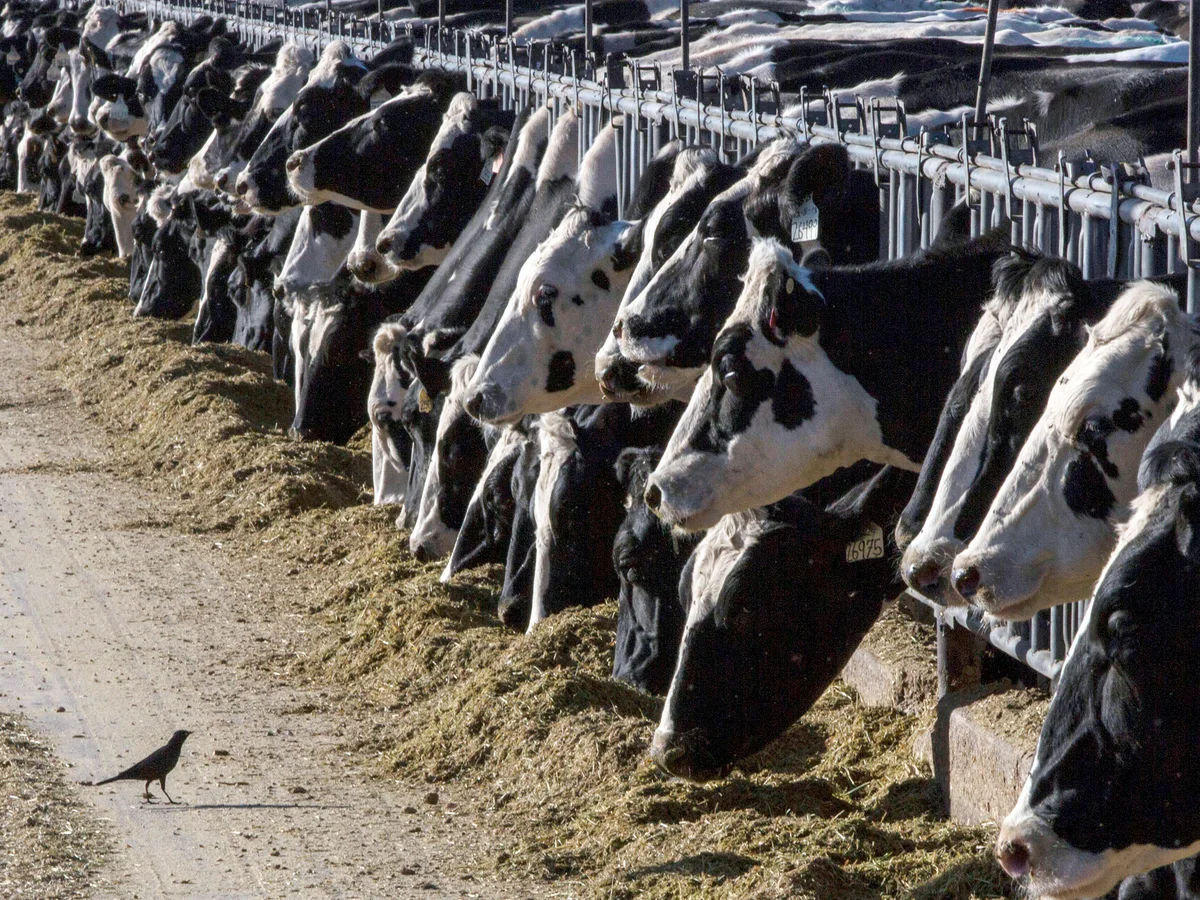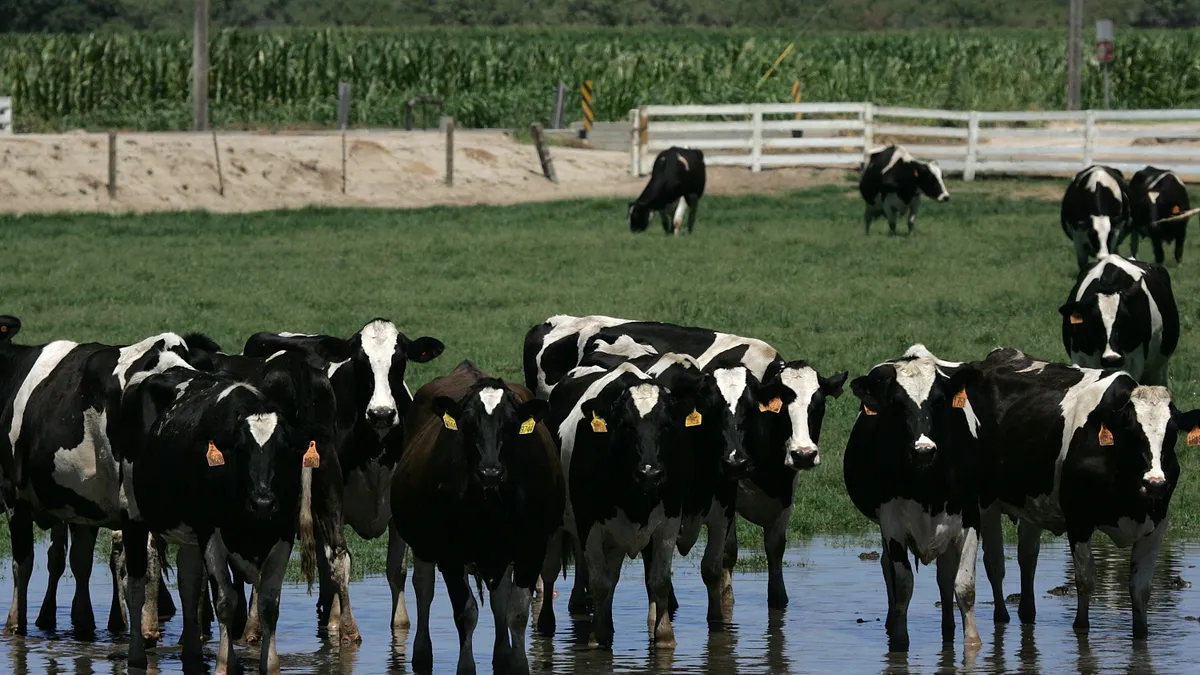The US government is intensifying its efforts to monitor the spread of the bird flu virus, H5N1, within the food supply by focusing on dairy cows brought to slaughter and testing raw milk cheeses. The renewed attention comes as part of broader global efforts to prevent a potential pandemic.
Regulators plan to inspect 800 samples from dairy cows in slaughterhouses, focusing on cows retired from milk production that make up around 10% of US beef.
This will help authorities assess the prevalence of the virus in meat products and identify potential risks. The USDA will also experiment on any samples that test positive to determine if the virus remains viable and to establish at what temperatures it is killed.
Previous surveys have provided some insights into bird flu’s potential to enter the food supply. A May survey tested muscle samples from cows showing signs of illness, identifying H5N1 particles in one dairy cow, which was kept out of the food supply. Additionally, ground beef from stores was tested and found free of the virus.
In controlled lab experiments, scientists simulated virus-contaminated ground beef to evaluate cooking’s impact on viral inactivation. When cooked to recommended USDA internal temperatures (medium and well-done), the virus was eradicated, confirming that cooking remains a reliable safeguard against foodborne pathogens.

Food safety experts are urging consumers to prioritize proper cooking practices to minimize health risks. While fully cooked meat inactivates viruses like H5N1, pathogens such as salmonella and E. coli are also eliminated through cooking.
However, many Americans do not use food thermometers to check meat’s internal temperature, increasing their risk of foodborne illness. Ground beef poses particular risks because it is often sourced from multiple cows, raising the likelihood of contamination. Experts emphasize that cooking burgers thoroughly will neutralize any potential threats, including avian influenza.
The current study is limited to dairy cows, though scientists have noted that the virus seems to spread mainly through milking equipment and human interaction rather than beef cattle.
While there is no definitive information on whether beef cattle have been tested for H5N1, the ongoing surveillance in the dairy sector and existing food safety practices are believed to mitigate potential risks. The USDA and FDA are confident that with proper monitoring and behavioral changes, the threat of bird flu entering the food supply can be controlled.
In addition to monitoring meat, the FDA continues to study the effect of pasteurization on the bird flu virus in dairy products. Tests on dairy products like butter and raw-milk cheeses from stores across multiple states have shown that pasteurization fully inactivates the virus in milk, ensuring that pasteurized milk is safe for consumption.
While hard cheeses made from raw milk aged for 60 days did not show viral traces, researchers have yet to determine if the aging process effectively inactivates the virus. The study could not draw definitive conclusions regarding the safety of unpasteurized dairy products.
Officials are particularly concerned about the growing interest in raw milk, which can carry dangerous pathogens. Despite the bird flu outbreak, the risks of raw milk consumption, including exposure to bacteria like E. coli and salmonella, have always been high.
Consuming raw milk has led to serious illnesses in humans, and recent studies suggest that H5N1 might infect mammals through contaminated milk. While the potential impact of bird flu on humans through raw milk remains uncertain, experts caution against consuming unpasteurized products due to the broader risks of foodborne illness.
